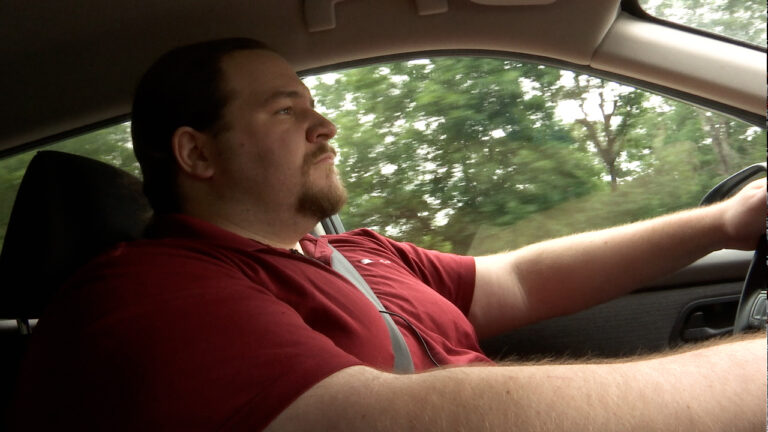Dakota Sullivan is a family intervention specialist with Youth Village’s Intercept Program. (Source: WKRN)
DIXON, Tenn. (WKRN) — Tennessee ranks 40th in the nation for access to mental health care, according to Mental Health America, and one state-funded program is working to expand access for Tennessee’s youngest patients by meeting them wherever they are.
Youth Villages, a private, nonprofit organization, formally launched the Intercept program in 2006. The Intercept program provides home-based mental health care to vulnerable youth in Tennessee.
According to Youth Village, 39 of Tennessee’s 95 counties do not have a psychologist on staff, and Dakota Sullivan, a family intervention specialist with Youth Village’s Intercept program, has seen firsthand the limited access to mental health care across the state.
“There are a lot of families who struggle to get mental health care because of where they live and how far away they are from urban areas,” Sullivan said. “Many families are an hour, sometimes two hours away from a hospital or clinic.” [away] from mental health services of any kind.”
A variety of public and private organizations refer children to the Intercept program, some of whom are at risk of or involved in the juvenile justice or foster care system. Family intervention specialists from Youth Village then provide care by visiting the children’s homes three times a week for four to nine months.
“Usually the first step is teaching them that it’s okay to talk about their mental health – that it’s okay to say, ‘I’m struggling and I’m having a hard time,’ because most of them don’t really want to do that,” Sullivan says. “Most of them want to keep it to themselves. They feel like there’s something wrong with them.”
The Intercept program serves approximately 1,600 children in Tennessee’s 95 counties daily. In 2023, 6,746 children received care through Intercept, according to Youth Villages.
The group said data shows that a year after being discharged, 91 percent of patients are living at home, 96 percent are back in school or employed, and 93 percent are no longer in legal trouble.
⏩ Read today’s top stories on wkrn.com
“It means a lot to me to see them thriving in a place where they once struggled,” Sullivan said.
Intercept officially launched in 2006, while Youth Villages began providing in-home services in 1993. The program is primarily funded by the Tennessee Department of Children’s Services.
For more information on Intercept, click here.


